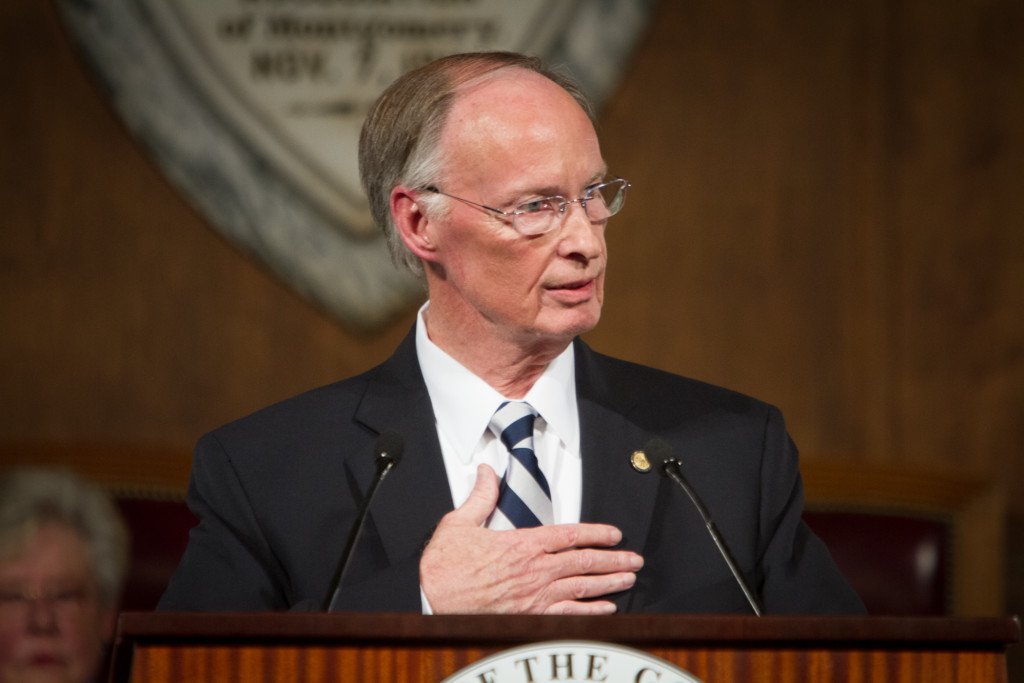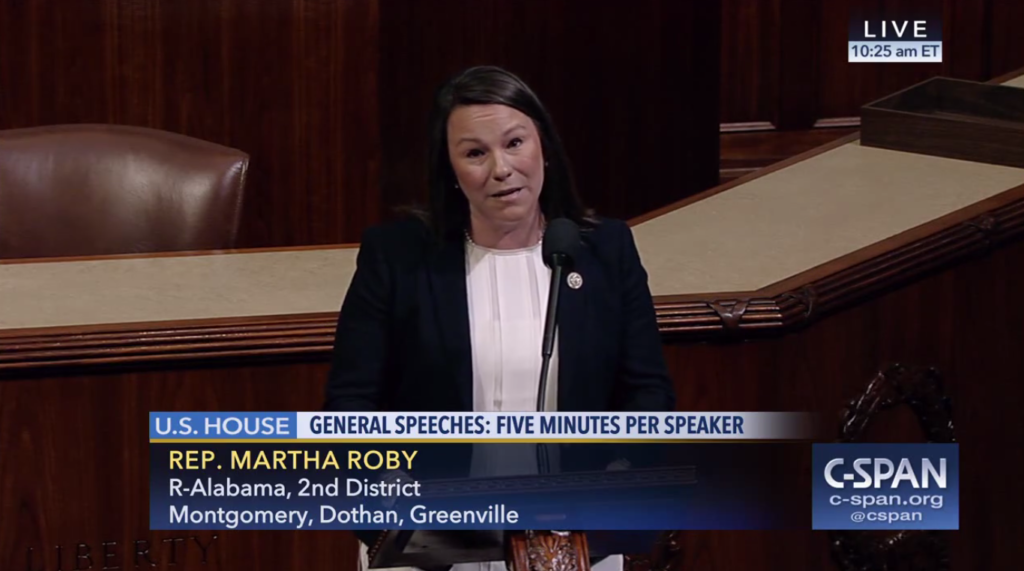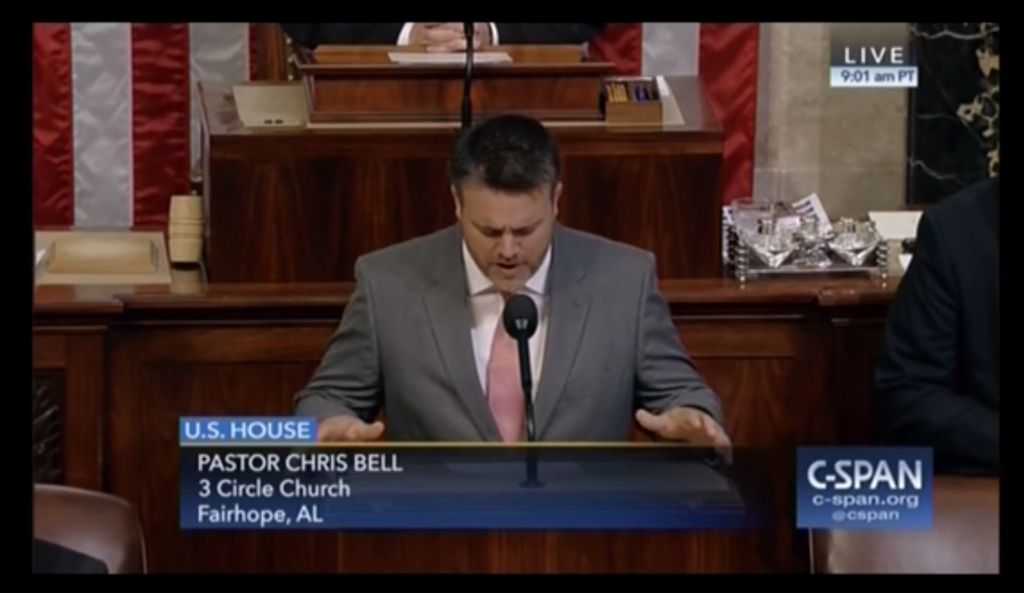House to vote on Donald Trump’s $1.6B border wall request next week

House Republicans are moving next week to fund President Donald Trump‘s $1.6 billion request to begin construction of his oft-promised wall along the U.S.-Mexico border. Aides said Tuesday evening that GOP leaders have decided to attach the money – to build 74 miles of fencing and levee wall in the Rio Grande Valley in Texas and near San Diego – to a spending bill for the Defense Department and a handful of other agencies like the Department of Veterans Affairs. The wall money is strongly opposed by Democrats and some Republicans. But Trump is insistent on it and the GOP plan would give Trump a much-needed victory on Capitol Hill after the failure of the Trump-backed effort to repeal and replace the Obama health law. Adding the wall money to the defense spending measure, which includes huge increases for the Pentagon, would appear to ensure its passage through the House, despite opposition among some border state Republicans, and could set up a clash with Senate Democrats. Trump has promised that Mexico would pay for the wall but hasn’t come up with a plan to force it to actually do so. Taxpayers will instead foot the bill. House Majority Leader Kevin McCarthy, R-Calif., announced Tuesday that GOP leaders had abandoned a plan to bundle all 12 of the annual spending bills for the budget year beginning Oct. 1 into a single omnibus package. That appeared to be too much for rank-and-file Republicans to digest, so McCarthy instead announced that funding for the Pentagon, the VA and the Energy Department would be tied together in a smaller, national security-focused measure. A McCarthy aide and a spokeswoman for Appropriations Committee Chairman Rodney Frelinghuysen, R-N.J., confirmed the plan to include the wall money in next week’s bill. But there probably won’t be an up-or-down vote on the funding. Republished with permission of The Associated Press.
White House criticizes Russia sanctions stalled in House

A new package of economic sanctions on Russia and Iran unacceptably constrains the president’s authority, the White House says, as Democrats complain that the Trump administration is trying to weaken the penalties. The legislation sailed through the Senate nearly a month ago in response to Russia’s meddling in the 2016 presidential election and its belligerence toward Ukraine. But the bill stalled in the House with Democrats and Republicans blaming each other for the delay. Marc Short, the White House legislative director, told reporters that the administration backs the new sanctions on Russia and Iran. But he appeared to object to a key part of the legislation that would give Capitol Hill a much stronger hand in determining Russia sanctions policy. The bill would require a congressional review if President Donald Trump attempted to ease or end penalties against Moscow. “Our concern is that the legislation, we believe, sets an unusual precedent of delegating foreign policy to 535 members of Congress by not including certain national security waivers that have always been consistently part of sanctions bills in the past,” Short said. Following his lengthy meeting on Friday with Russian President Vladimir Putin in Germany, Trump said he wants to move forward “working constructively with Russia” Officials from the Treasury and State departments met last week with House congressional staff to voice their concerns over the congressional review section of the bill. The officials said the provision would infringe on the president’s executive authority, according to an aide knowledgeable of the discussions. But weakening that provision substantially could provoke resistance from Republicans and Democrats. Sen. Bob Corker of Tennessee, the Republican chairman of the Foreign Relations Committee, heralded the review requirement as the proper exercise of congressional authority. Corker told reporters Monday that it’s not unusual for a White House to resist oversight of foreign policy. But he said the sanctions review requirement is a “very important” part of the legislation. “Any administration would prefer to conduct foreign policy 100 percent without involvement from Congress,” Corker said. But no Trump administration official has contacted him to say “we don’t want this legislation to pass. That has never occurred,” he said. Trump tweeted Sunday that sanctions against Russia were not discussed at his meeting with Putin. But White House spokeswoman Sarah Huckabee Sanders contradicted Trump, telling reporters Monday that “sanctions specific to election-meddling were discussed” in the meeting. Ashley Etienne, a spokeswoman for House Minority Leader Nancy Pelosi, said that Democrats have been demanding for weeks, to no avail, that the House Republican leadership bring the sanctions bill to the floor for a vote. “While Putin and President Trump meet privately, the American people are left to ask why Republicans are more concerned with Russia’s interests than the integrity of our democracy,” she said. A key sticking point for Democrats is a proposed technical change to the bill made late last month by the Senate that Democratic aides said Monday would prevent rank-and-file House members from being able to challenge a president’s decision to lift or ease the sanctions against Russia. But AshLee Strong, a spokeswoman for House Speaker Paul Ryan, blamed House Democrats for holding up the bill unnecessarily. She said House Republicans are fully prepared to coordinate with the Senate and move the bill forward, “but House Democrats are blocking that and demanding their own changes to the bill.” Separately, a Republican aide said House leaders were confident the sanctions package would be approved before Congress leaves for the August recess. The Republican and Democratic aides were not authorized to speak publicly and requested anonymity to discuss private talks. While Congress was on its weeklong July 4 recess, a new wrinkle developed that could make approval of the legislation more difficult. The national trade association representing oil and gas companies said the bill could harm U.S. energy companies while strengthening the hand of Russian businesses. The American Petroleum Institute said late last week that the bill would expand a prohibition on U.S. energy companies from being involved in oil projects located in Russia to projects around the world that include Russian energy firms. In trying to punish Moscow, the group said, the bill could instead penalize major American business, potentially costing billions of dollars in jobs and economic activity. Secretary of State Rex Tillerson, the former CEO of Exxon Mobil, has declined to endorse the sanctions legislation. He said during congressional testimony that Trump needs to have “the flexibility to adjust sanctions to meet the needs of what is always an evolving diplomatic situation” with Russia. The legislation cleared the Senate two weeks ago with 98 votes, an overwhelming margin that suggested the bill would speed quickly through the House and to Trump’s desk. But progress on the measure slowed almost immediately. House Republican leaders said the bill ran afoul of a constitutional requirement that legislation involving revenue start in the House. The necessary repairs were made, according to Corker, and approved by the Senate in late June. Republished with permission of The Associated Press.
Bradley Byrne: The House is working for the American people

Last week in Washington, all eyes were on the Senate Intelligence Committee where former FBI Director James Comey was sent to testify. The hearing was a media circus. News outlets used countdown clocks in the lead up to the “big moment.” Of course it is important to get to the bottom of Russia’s involvement in the 2016 election. That is why committees in Congress and a special counsel are working diligently to get answers. Unfortunately, many think the issue should be litigated in the media instead of through the proper legal process. We should follow the facts and the law and nothing but the facts and the law. What the news media was not talking about last week was our efforts in the House to stick true to our word and enact a commonsense, conservative agenda. We are getting the work done that the American people elected us to do. Consider these numbers: to date the Republican-led House has passed over 158 bills, making us the most productive in the modern era. On top of that, President Trump has signed 37 bills into law, which places him ahead of the last four presidential administrations. We are getting things done. So what exactly are we accomplishing? Everything from passing a bill to repeal and replace Obamacare to enacting a whole range of bills focused on rolling back burdensome regulations that are restricting economic growth. Just this past week we passed a range of bills addressing a range of issues important to the American people, including financial regulations and border security. First, we passed a bill to dismantle the Dodd-Frank law passed by Democrats in 2010. We were promised that the Dodd-Frank Act would be a major win for the American consumer. Instead, big bank bailouts were enshrined in law while small banks and credit unions that people in Southwest Alabama rely upon are drowning in regulations and red tape, making it harder for them to serve their customers and threatening their existence. In fact, studies show that at least one small bank or credit union close each day due to Dodd-Frank. That is why the House passed the Financial CHOICE Act last week, sending a clear message that Main Street comes before Wall Street. The bill officially ends the policy of “too big to fail” and puts a stop to bank bailouts. Just as important, the bill increases consumer protections and simplifies systems to ensure they cannot be gamed by the well-connected and powerful. It is all about increasing opportunities for hardworking Americans and small businesses. Second, we passed the Anti-Border Corruption Reauthorization Act of 2017, which will make it easier to fight illegal immigration and secure the border. Our border protection programs are currently severely understaffed. In fact, the numbers show that we are short 1,000 officers and 1,800 Border Patrol Agents. This shortage is making it harder to secure the border and keep bad guys out of our country. That is where our bill comes it. It will allow us to expedite the hiring of border patrol agents when the individuals have previously served in law enforcement or in the military. These are the exact kind of people we need working to secure the border. As you can see, in the House of Representatives, we refuse to have our agenda thrown off course. Even more, we are continuing to making important progress on other priorities like tax reform, rebuilding the military, and fixing our nation’s infrastructure. I pledge to continue to keep my head down and focus on the issues you elected me to tackle. We must get the job done. • • • Bradley Byrne is a member of U.S. Congress representing Alabama’s 1st Congressional District.
Terri Sewell votes against bill aimed at reversing Dodd-Frank financial regulations

The U.S. House of Representatives voted Thursday to deliver on their promise to repeal Dodd-Frank — the sweeping set of financial regulations imposed on Wall Street that former President Barack Obama signed into law following the 2008 financial crisis. H.R. 10: the Financial CHOICE (Creating Hope and Opportunity for Investors, Consumers and Entrepreneurs) Act is intended to end taxpayer-funded bailouts of Wall Street banks and create more opportunities for Americans on Main Street, but the Alabama delegation’s sole Democrat, 7th District U.S. Rep. Terri Sewell, says the bill would actually “eliminate consumer protections designed to deter abuse by predatory lenders and large financial institutions.” “I voted against the Wrong CHOICE Act because it erases financial protections for American families and eliminates the safeguards enacted to protect against another financial crisis,” said Sewell. “In Alabama, we all remember the devastating impact the recession had on families in our communities.” Sewell continued, “Between the home foreclosures, rising unemployment, and the families whose dreams were stripped away to pay for Wall Street’s mistakes, it is hard to forget. It is unacceptable that only a decade later, Congress is rolling back key financial reforms enacted under the Obama Administration. We cannot go back to a time when predatory lenders and other bad actors abused consumers and brought our economy to the brink of collapse.” The remainder of the Alabama delegation voted in favor of the bill, which passed the House 233-186 along party lines.
Alabama sees America’s highest premium spike under Obamacare

A new report from the Department of Health and Human Services (HHS) details the premium changes Americans across the country have experienced under former President Barack Obama‘s signature legislation, Affordable Care Act, better known as Obamacare. According to the report, which uses the data the Obama administration relied on, “average exchange premiums were 105 percent higher in the 39 states using Healthcare.gov in 2017 than average individual market premiums in 2013.” “Premiums for individual market coverage have increased significantly since the Affordable Care Act’s key provisions have taken effect,” the new report reads. The report also found the State of Alabama saw the nation’s highest premium increase since the implementation of Obamacare with an average 223 percent increase between 2013 and 2017 due to the new regulations. That’s more than double the national average. Alabama 2nd District U.S. Rep. Martha Roby said the statistics show why Republicans are working to offer Americans relief from the burdensome law. “The numbers are staggering. Insurance premiums and deductibles have skyrocketed due to the regulations and mandates imposed by Obamacare,” Roby said. “Providers have been forced out of the market, and Alabama consumers now only have one option for health insurance. Problems like these are why I worked to help build support for our three-step plan to repeal and replace Obamacare.” Earlier this month the U.S. House of Representatives passed the American Health Care Act (AHCA), which is the first of a three-phase plan by Republicans in Congress and the Trump Administration to repeal and replace Obamacare and rebuild America’s health care system, based on a plan that is intended to lower premiums and other out-of-pocket costs that have come to weigh on patients.
Only 2 members of Alabama’s congressional delegation hosting town halls during Easter break

Members of the U.S. House of Representatives are currently in the middle of a two and half week Easter recess. In the past, during similar breaks from D.C., members would fill their schedules with town hall meetings with constituents. But not this time. As of Wednesday, most members of Alabama’s congressional delegation don’t have any town halls scheduled over their break that began on Monday. Five of Alabama’s seven Congressional members are following a national trend — avoiding town halls altogether. Perhaps to avoid the ire of the failed health care vote, or possible backlash from President Donald Trump‘s decision to airstrike Syria, but regardless of reason 2nd District Rep. Martha Roby, 3rd District Rep. Mike Rogers, 4th District Rep. Robert Aderholt and 5th District Rep. Mo Brooks don’t have any town halls scheduled on their websites this break. But that doesn’t mean they’re not working. Many will spend the break meeting with constituents and visiting local businesses across their districts. 7th District Rep. Terri Sewell is not hosting any events this break as she mourns the loss of her beloved father, legendary Selma High Basketball Coach Andrew A. Sewell. “My father was a devoted husband, a wonderful father, grandfather, brother, teacher, basketball coach and mentor to thousands of young people during his 36 year career as a coach and teacher,” said Sewell. “As the Head Basketball Coach at Selma High, Coach Sewell led the Selma Saints to Area or State Playoffs 12 out of 19 years including two state runner-up finishes and two third place finishes in the Alabama Class 6-A High School state tournaments. Despite a series of strokes from 1988 to 2003, my father continued to live life with the same strength, grit and determination that he demanded of his players. We are so proud of his extraordinary life of exemplary sportsmanship and we are comforted by the knowledge that his legacy will live on in the many lives that he touched. “ As for those brave enough to host town halls, only 1st District U.S. Rep. Bradley Bryne and 6th District U.S. Rep. Gary Palmer are willing to take on constituent questions and feedback head-on this Easter break. At their respective town hall events, which are free and open to the public, the representatives will take questions and address important issues that face Alabamians. See below for the dates, times and locations: Alabama 1st District U.S. Rep. Bradley Bryne is hosting a whopping 11 town halls during the break. “Over the week of April 17th, I will be holding eleven town hall meetings in four days with stops in each of the counties that make up Alabama’s First Congressional District,” said Byrne. Wilmer Town Hall Monday, April 17 at 1:30 p.m. Wilmer Senior Citizens Center 13251 Avenue B Wilmer, AL 36587 Stapleton Town Hall Monday, April 17 at 4:00 p.m. Stapleton Volunteer Fire Department 36578 AL-59 Stapleton, AL 36578 Satsuma Town Hall Tuesday, April 18 at 10:00 a.m. Satsuma City Hall 5464 Old Highway 43 Satsuma, AL 36572 Poarch Creek Town Hall Tuesday, April 18 at 2:30 pm. Tribal Council Chambers 5811 Jack Springs Road Atmore, AL 36502 Brewton Town Hall Tuesday, April 18 at 5:15 p.m. Brewton Community Center 1010A Douglas Avenue Brewton, AL 36426 Alabama Port Town Hall Wednesday, April 19 at 9:30 a.m. Alabama Port Volunteer Fire Department 3290 Highway 188 Coden, AL 36523 Daphne Port Town Hall Wednesday, April 19 at 2:00 p.m. Daphne City Hall 1708 Main Street Daphne, AL 36526 Foley Town Hall Wednesday, April 19 at 4:00 p.m. Foley City Hall 407 East Laurel Avenue Foley, AL 36535 Excel Town Hall Thursday, April 20 at 11:30 a.m. Excel Town Hall 3199 AL-136 Excel, AL 36439 Grove Hill Town Hall Thursday, April 20 at 2:00 p.m. Grove Hill Senior Center 113 Clark Street Grove Hill, AL 36451 Wagarville Town Hall Thursday, April 20 at 4:00 p.m. Wagarville Nutrition Center 27531 Highway 56 Wagarville, AL 36585 Alabama 6th District U.S. Rep. Gary Palmer: Chelsea Town Hall Tuesday, April 18 at 6 p.m. Chelsea Community Center 11101 Highway 47 Chelsea, AL 35043 Gardendale Town Hall Thursday, April 20 at 6:30 p.m. Gardendale Civic Center 857 Main Street Gardendale, AL 35071
Mo Brooks joins House colleagues in leading effort to defund sanctuary cities

In an effort led by Alabama 5th District U.S. Rep. Mo Brooks, Arizona 4th District U.S. Rep. Paul Gosar, Iowa 4th District U.S. Rep. Steve King and Colorado 4th District U.S. Rep. Ken Buck — a group of House Republicans are urging Congressional appropriators to defund “sanctuary cities” that prevent law enforcement officials from faithfully executing America’s immigration laws: In a letter sent Tuesday, the four sponsors and 35 additional co-sponsors submitted appropriations language requesting the House Appropriations Committee prevent funds from going to “sanctuary cities.” “Sanctuary cities” are municipalities that have limited their cooperation with federal officials regarding undocumented immigrants, in order to help illegal immigrants avoid deportation. Currently, there are around 340 sanctuary jurisdictions across the U.S. actively obstructing federal law enforcement protecting illegal immigrants in sanctuary cities, according to a recent study by the Center for Immigration Studies. The letter follows an executive order President Donald Trump issued on his fifth day in office, whereby allowing Attorney General Jeff Sessions and Homeland Security Secretary John Kelly to decide whether sanctuary cities would be eligible for federal grants. “Congress has an opportunity to work with the Trump Administration and enforce our nation’s immigration laws with respect to sanctuary cities,” said Congressman Mo Brooks. “Cities and localities who have refused to comply with federal immigration laws and knowingly shield dangerous felons from removal by ICE present a clear danger to our Republic. According to an ICE report from March of 2017, there are an estimated 300 cities and counties obstructing federal immigration agents from doing their jobs to deport dangerous criminals, thereby intentionally endangering Americans.” Rep. Gosar points to the U.S. Constitution as the reason he and his colleagues are taking action. “The concept of ‘sanctuary city’ policies is in direct opposition to the Rule of Law and our Constitution. Article 1, Section 8, Clause 4, gives Congress clear jurisdiction on immigration matters,” stated Gosar. “I’m pleased to see President Trump and Attorney General Sessions lead on this issue, but the House must also act by using the power of the purse. It’s long past time for Congress to crack down and defund sanctuary city policies that are proven to be deadly and put the security of our communities at risk.” The House has voted and passed language that prohibits federal funds from going to sanctuary cities five different times in recent years. “Sanctuary cities force the federal government to spend more money on immigration enforcement,” added Rep. Buck. “We must assert federal authority on federal issues and cut off funding for cities that violate the rule of law, which is what this appropriations request does.” The full text of the appropriations language request can be found HERE. The list of 35 House members who cosponsored this language request include Representatives Abraham, Arrington, Babin, Barletta, Brady, Brat, Mo Brooks, Buck, Cramer, DeSantis, Duncan, Farenthold, Franks, Gosar, Grothman, Hensarling, Hice, Hunter, Sam Johnson, Jones, Kelly, Steve King, Lamborn, Marino, McCaul, McClintock, Meadows, Olson, Ratcliffe, Rooney, Rouzer, Schweikert, Wagner, Webster and Yoho.
Thursday vote on GOP health care bill canceled

GOP leaders in the U.S. House of Representatives have canceled a scheduled Thursday night vote on a plan to repeal and replace President Barack Obama‘s signature health care law, a Republican aid confirmed to Alabama Today. The decision came after conservatives in the House Freedom Caucus failed to strike a deal on the bill in a meeting with President Donald Trump Thursday at the White House. North Carolina-Republican U.S. Rep. Mark Meadows, chairman of the House Freedom Caucus, told reporters while no deal had been made today, he was still hopeful one ultimately would be. “I am very hopeful we can find a way to yes,” said Meadows of a future deal. This story will be updated.
What they’re saying about the American Health Care Act: Robert Bentley

The Republican alternative to replace Obamacare will face it’s first test Thursday. The U.S. House of Representatives is expected to vote on the new American Health Care Act (AHCA) to repeal and replace the Affordable Care Act, better known as Obamacare. On Wednesday, Alabama Gov. Robert Bentley addressed a letter to President Donald Trump thanking him and his Administration for developing the plan — a three-pronged approach intended to improve health-care delivery and health insurance in our country. Bentley mentioned that he is also looking forward to working with the Trump Administration to help Alabama improve Medicaid for its citizens by providing managed care through regional care organizations. “Secretary Price on Monday, in a meeting with me and other Alabama officials, assured us that Alabama, a state that stood strong and chose not to expand Medicaid, will be given much-needed flexibility to adjust to changes proposed by the American Health Care Act,” he said in his letter to the President. Bentley wanted to make sure Alabama, and the 18 other non-expansion states, was not financially hurt in the health care overhaul. “Given such assurances, and given some key changes made in recent days to the proposed American Health Care Act, I support the legislation,” Bentley continued. Under the new proposal, Alabama would receive an additional $90 million annually for five year. Read the full letter below:
What they’re saying about the American Health Care Act: Martha Roby

The U.S. House of Representatives is poised to hold a highly anticipated vote on the Republican health care bill Thursday night — the seventh anniversary of former President Barack Obama signing the Affordable Care Act, commonly called Obamacare — and would rewrite the current health care system. On Wednesday, Alabama 2nd District U.S. Martha Roby voiced her support for the bill, titled the American Health Care Act (AHCA) on the House floor, and called on her fellow House conservatives to keep their promise to repeal and replace Obamacare. In a speech, Roby reminded her colleagues of the repeated promises Republicans have made to do away with Obamacare for the last seven years. “I’ve heard from countless constituents negatively impacted by Obamacare,” Roby said. “And in response, I made a promise – the same promise President Trump and every conservative in Congress has made over and over: give us the majority in the House and Senate, give us a Republican in the White House, and we will repeal Obamacare and replace it with reforms that work.” Roby readily acknowledged no bill is perfect, but she said passing the ACHA is the best opportunity for Congressional Republican to deliver on their promises to constituents. She continued, “Mr. Speaker, I am confident that this bill puts us on a path toward lower costs and better care – and away from government-controlled health insurance. It represents our opportunity to undo the damage of Obamacare and help American families like we said we would. For seven years we have been promising, and this is our chance to deliver.” If passed, the bill will be taken up by the Senate. Watch Roby’s floor speech below: Read the full text of Roby’s remarks as prepared: Thank you, Mr. Speaker. Seven years ago this week, in this chamber, the House gave final passage to the Affordable Care Act, better known as Obamacare. I wasn’t in Congress then. Many of us weren’t. But for my fellow conservatives here today, that vote seven years ago marked a decision point or a moment of affirmation to answer the call to public service and help chart a better way for this country. And for seven years we have made the case against Obamacare. As the law has been implemented, that case has largely been made for us. Millions have been forced away from the health care plan and doctor they liked, despite promises to the contrary. This year alone, in Alabama, health insurance premiums are rising by 58 percent. That’s on top of already steep increases the past two years. Our average deductible for the supposedly affordable Bronze plan is now six thousand dollars. I’ve heard from countless constituents negatively impacted by Obamacare. I’ve listened to their stories about how higher costs and fewer choices have made it that much harder to keep their families healthy and make ends meet. And in response, I made a promise; the same promise President Trump and every conservative in Congress has made over and over: give us the majority in the House and Senate, give us a Republican in the White House, and we will repeal Obamacare and replace it with reforms that work. So Mr. Speaker, I am pleased that we are finally in a position to deliver on that promise. The voters gave us what we asked of them, and it’s only right that we keep our end of the bargain. With the American Health Care Act, we begin the process of repealing Obamacare once and for all. This bill dismantles the taxes, mandates, and entitlement spending that make up the core of Obamacare. It cuts taxes on prescription drugs, over-the-counter medications, insurance premiums, and medical devices. It eliminates the individual and employer mandate penalties that have forced millions into expensive, inadequate plans. It replaces the Obamacare entitlement with refundable tax credits so that people who don’t receive insurance through work can put their own tax dollars toward a health plan of their choice. Mr. Speaker, many have asked why our plan to repeal and replace Obamacare is a process. Why is this bill only one step and not the full package? It’s an understandable question. For the last several years, Americans have been sold the false hope that the government has a magic wand with which it can quickly solve all their problems. The truth is, of course, that it can’t. It never can. And the only proof you need is Obamacare itself. That’s why Congressional Republicans and the Trump Administration are taking completely a different approach than President Obama and the Democrats used seven years ago. Instead of claiming “we need to pass the bill so you can find out what is in it,” we have worked in a transparent way. The bill text has been posted online for three weeks. It has gone through three separate committee mark-ups, and will come to the House floor in regular order. Instead of one giant bill like Obamacare, we are using a more responsible, three-step process. First, we’ll repeal Obamacare with all its taxes, mandates and spending through budget reconciliation. Next, the Trump Administration will use its executive authority to weed out the more intricate Obamacare policies one-by-one to stabilize the market and lower costs. And finally, Congress will move forward with legislation addressing more specific policies, such as allowing individuals to purchase insurance across state lines. I believe this will ultimately lead to better, more stable health care policy that empowers patients, increases choices, and lowers costs. Mr. Speaker, no bill is perfect. I’m sure if every member of this body came up with their ideal health reform bill, they’d each be pretty different. It’s supposed to be that way, because we all represent different districts with different needs. There may well be some changes made here in the House or in the Senate that can make the bill better. That’s part of the process, so I certainly remain open to those. But, Mr. Speaker, I am confident that this bill puts us on
Alabama pastor Chris Bell leads opening prayer before U.S. Congress

At the invitation of Congressman Alabama 1st District U.S. Rep. Bradley Byrne, Tuesday morning Pastor Chris Bell from 3Circle Church in Fairhope delivered the opening prayer before the U.S. House of Representatives. Members of Congress have the opportunity to invite local faith leaders to deliver the opening prayer each day the House is in session. During his visit to D.C., Pastor Bell, along with his wife Nan, shared breakfast with Byrne, took a tour of the U.S. Capitol, and met House Speaker Paul Ryan. Following the prayer, Byrne spoke about Pastor Bell and the important work his ministry does in Southwest Alabama. Read Byrne’s full remarks below: Mr. Speaker, it is written in Philippians 4:6 “Do not be anxious about anything, but in everything by prayer and supplication with thanksgiving let your requests be made known to God.” As this body debates important issues, it is critical we begin with prayer, and I am honored my constituent, Pastor Chris Bell, was able to lead today’s prayer. Mr. Speaker, Pastor Bell studied theology and communications at the University of Mobile and Luther Rice Seminary, and he has over 20 years of ministry experience. Pastor Bell is currently the lead pastor at 3Circle Church in Southwest Alabama. 3Circle Church has five campuses with weekly attendance reaching over 2,000 people. In addition to their regular services, Pastor Bell and 3Circle Church have a focus on mission and serving others locally, regionally, and all around the world. These missions make a real difference. So, on behalf of Alabama’s First Congressional District, it is an honor to welcome Chris and his wife, Nan, to the People’s House.
House passes bill to help VA fill critical job openings with support of entire Alabama delegation

While partisan politics undeniably has its place in the nation’s capital, on Friday members of the U.S. House of Representatives put aside political bickering in order to support an issue everyone agrees on — taking better care of America’s veterans. With the support of the entire Alabama delegation, the House unanimously passed H.R. 1367 in hopes of improving the Department of Veterans Affairs’ (VA) ability to recruit and retain high-quality health care providers and other professionals. The department has tens of thousands of vacant positions, and the bill would help strengthen the VA’s ability to identify staffing shortages, recruit employees to fill vacant positions, quickly on-board new hires, and retain high-performing workers across the country. Additionally, it contains provisions that would improve leadership and accountability throughout VA system, while helping increase the number of veterans in the federal workforce. Also included in the bill, was an amendment added by Alabama-Democrat 7th District U.S. Rep. Terri Sewell. The amendment encourages the VA Secretary to select eligible employees for its Fellowship Program who represent rural areas in order to alleviate the systemic burdens of rural healthcare workforce shortages. “In return for their service, our country has a sacred obligation to care for our veterans and military families,” said Sewell. “Today’s bipartisan support for legislation that strengthens VA hiring practices is an important step towards providing more responsive, more effective healthcare for our nation’s heroes.” Approximately 25 percent of America’s veterans live in rural communities and comprise nearly 11 percent of the adult rural population. Rural veterans account for 36 percent of all VA enrollees, making Sewell’s amendment particularly pertinent. “My amendment helps to ensure that veterans who are serviced by rural VAs have access to healthcare experts with cutting edge experience in the public and private sectors,” Sewell continued. “On top of long driving distances and minimal access to care, workforce shortages make it harder for our rural veterans to get the help they need, when they need it. I want to thank my colleagues on both sides of the aisle for their support, and I look forward to continuing our work to ensure that our nation keeps its promise to the men and women who serve our country.”


